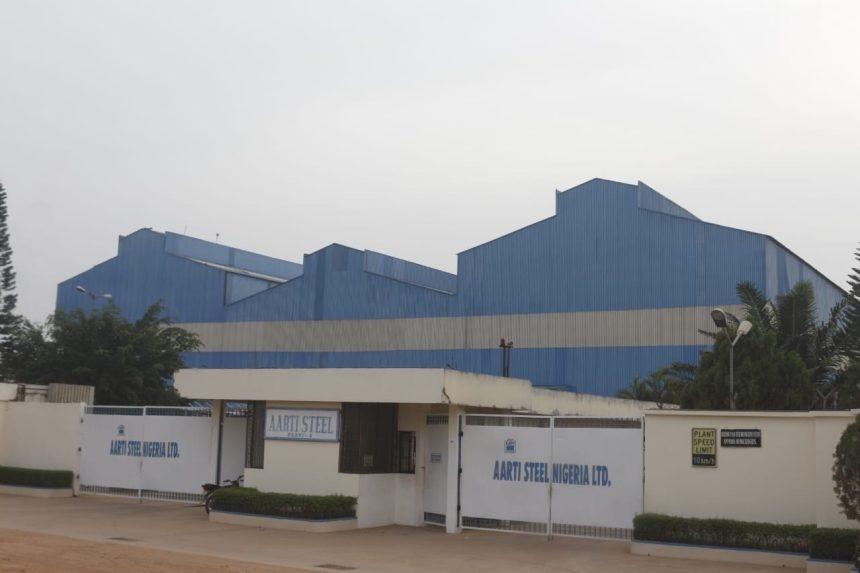Aarti Steel Nigeria has reportedly ceased its operations in the country, citing economic challenges as the primary reason for this decision. The company, which has been producing roofing sheets in Nigeria for over a decade, has built a reputation as a reliable business partner for numerous customers both locally and internationally.
Sources indicate that Aarti Steel Nigeria, based in Ota, Ogun State, has faced significant operational difficulties over the past year. Production has been intermittent, making it challenging for the company to meet financial requirements necessary to sustain its operations.

Severe indebtedness due to forex exchange losses, unfavorable economic policies, and depressed local pricing mechanisms forced the company to sell its products at prices lower than the cost of production, ultimately leading to the plant’s shutdown.
The company’s closure has sparked interest from two major steel companies in Nigeria and several Indian steel firms, who are considering purchasing the plant. This move aims to preserve the thousands of direct and indirect jobs linked to Aarti Steel’s value chain.
READ ALSO: Nigeria Imports $4 Billion Worth of Steel Annually
The recent shutdown of Aarti Steel is part of a broader trend of multinational companies exiting Nigeria. The Labour Party’s 2023 presidential candidate, Peter Obi, recently highlighted this issue, noting the departure of several multinational giants from the country in the past year. These companies, including GlaxoSmithKline, Equinor, Sanofi-Aventis, Bolt Food, Procter & Gamble, Jumia Food, PZ Cussons, Kimberly-Clark, and Diageo, have cited a harsh business climate as the reason for their exit.
Obi expressed concern over this alarming trend, stating, “I am compelled to address the alarming exodus of multinational companies from Nigeria, which has cost our nation a staggering N95 trillion in the past five years.” He emphasized that the consistent problems faced by these companies indicate a larger governance issue that needs to be addressed urgently to prevent further economic decline.



